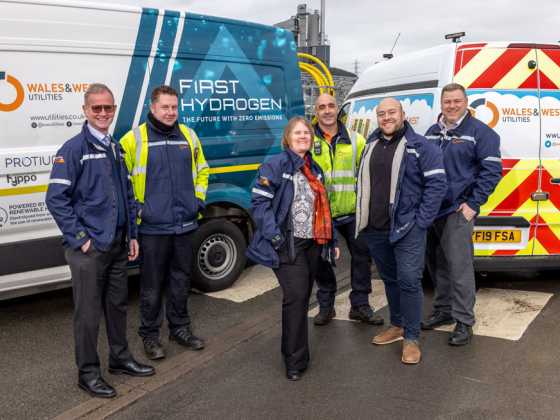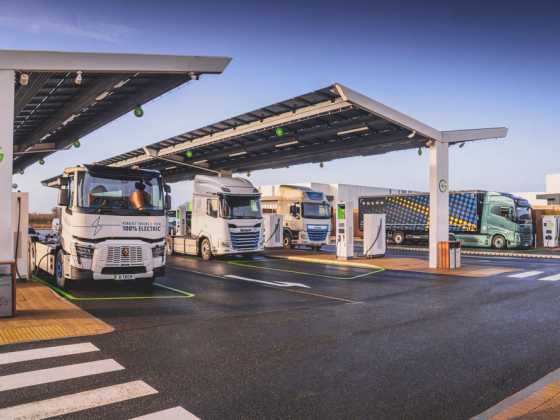The impact of a UK electric vehicle charging infrastructure
ITS (UK) has created an Electric Vehicle Infrastructure Working Group to assist in the research and development of a charging infrastructure for electric vehicles across the country

ITS (UK) recently demonstrated its commitment to assisting research and development in the development of infrastructure for electric vehicles through the establishment of the Electric Vehicle Infrastructure Working Group (EVIWG).
The EVIWG, chaired by Professor Phil Blythe of Newcastle University, Andrew Pearce of Mouchel and Tony Mallichan of Logica, is concentrating its efforts on assessing the ITS implications and opportunities associated with the electricity recharging infrastructure that are currently being installed as part of the UK’s Plugged-in-Places programme.
Interest in this area followed ITS (UK)’s invitation to attend the Energy Technologies Institute’s (ETI) Stakeholder Group meeting where there was unanimous concern regarding the lack of coordination across the whole spectrum of electric vehicle development but in particular the dearth of attention towards the essential infrastructure.
ITS (UK) recognises that it has expertise in its considerable knowledge and experience in the ‘back-office’, fiscal charging and data transfer options.
A PLAN OF ACTION
At its inaugural meeting the EVIWG confirmed its vision and ratified its terms of reference in addition to determining a plan of action and agreeing a structured programme for the next twelve months. The plan of action includes regular progress reports to the ITS (UK) Council and liaison with interested governmental departments and related agencies, including CENEX, the UK’s centre of excellence for low carbon and fuel cell technologies, the Energy Technologies Institute (ETI) and the government’s Office of Low Emission Vehicles (OLEV).
The EVIWG, initially set up under the umbrella of the Smart Environment Interest Group, has close alliances with the Low Carbon Working Group and both groups are anticipating mutual benefits as the plan of action unfolds.
WORKING TOGETHER
A range of private and public sector members have already become members of the EVIWG since its inception in early September and it is anticipated that collaborative efforts in this area will further assist ITS (UK)’s involvement.
Since the inaugural meeting a Strategic Planning Roadmap workshop was held in Newcastle, under the direction of Dr David Beeton from OneNE, to help identify the ITS capabilities in relation to supporting electric vehicle infrastructure requirements. As Newcastle is one the UK’s current ‘Plugged-in-Places’ there is a vested interest in supporting this work. Although the full findings have to be circulated there is no doubt that there is considerable scope for ITS (UK) to make a significant contribution in the development of the electric vehicles through the provision of the related data exchange/transfer that will facilitate the adoption of electric vehicles as both publicly acceptable and commercially viable.
THE IMPACT OF ELECTRIC VEHICLES
Ongoing political interest and industrial commitment to the development of electric vehicles suggests that there is a drive for this mode to become a pivotal form of transport. Whilst the EVIWG initial focus is directed towards the recharging infrastructure, there is a realisation that its impact needs to extend far further, such as how the introduction of a large number of electric vehicles will interact with the existing UK fleet.
As an example TRL is conducting a project on the effect that electric vehicles will have on the roads network and how this could affect UTMC and other systems.
Historically vehicle refuelling has tended to be an ad-hoc purchase and is based on user gauging range from the fuel gauge. Emerging philosophy suggests that electric vehicle recharging has a wholly different dynamic and has a closer correlation to how users regard mobile phone battery discharging rates.
However where this association varies is that the discharge of an electric vehicle battery can have a far greater significance and effect than a mobile phone battery where the consequences are minimal.
There is burgeoning global interest and commitment in this area and the EVIWG intends keep other interested parties, such as ITS America, ERTICO, ITS National Network of Associations and ITS (UK)’s Low Carbon Working Group, fully appraised of ongoing progress.
One of the EVIWG’s intentions is to establish Special Sessions at the ITS Europe 2011 Conference, Lyon, France and the ITS World Congress 2011, Atlanta, USA on the themes of electric vehicle infrastructures and the ITS implications.
It is believed that the development of electric vehicles is a UK strength with significant potential for economic importance; as a consequence it is anticipated that this schedule of work will promote this pioneering work and will guarantee that ITS (UK) remains at the forefront of expertise in this innovative business area.
FOR MORE INFORMATION
Web: www.its-uk.org.uk






